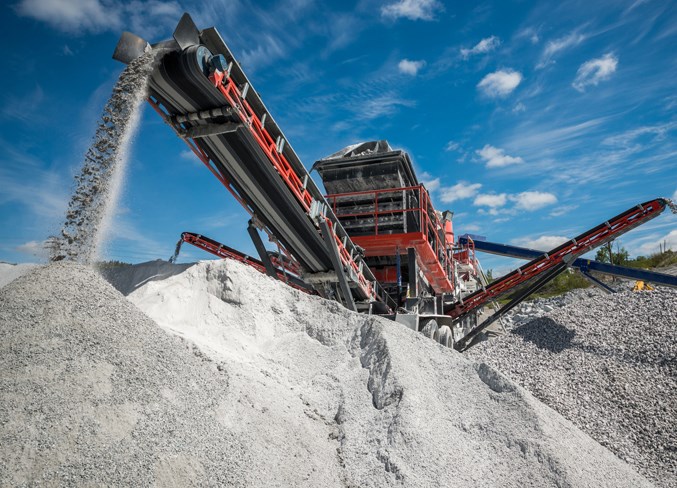Rocky View County’s (RVC) Aggregate Resource Plan Stakeholder Advisory Committee held its final meeting earlier this month to finalize the details of a draft report that will help to guide County gravel policy for the foreseeable future.
The six member committee, which has been meeting since last August, were unsatisfied by the first draft report presented at the last meeting a month ago. The members, who represent agricultural, residential, and industry interests, were not able to come to a clear enough consensus on some of the resource plan’s defining points. The most consistent area of contention and disagreement has been over locational criteria for gravel development.
Although the latest version of the report does outline areas where the group did come to consensus, in the end the committee could not decide on where gravel developments could or should be located.
The committee comes to consensus on performance standards, monitoring and enforcement, and transparency
One area defined as a consensus subject by the committee’s final draft report is performance standards. Specifically, the report states that the County should develop specific performance standards for aggregate developers operating in RVC.
The report states that “Rocky View County should develop Performance Standards specific to aggregate development and operations across the County. All new Aggregate Master Site Development Plans, land use redesignation, and development permit applications shall comply with these Performance Standards.”
All pre-existing developments seeking renewal will have to align with new performance standards if they want to remain in operation and the County will have to “periodically review the performance standards to ensure they align with the evolving industry.”
As stated in the report, the committee came to the decision that the County needs to actively regulate gravel operations through responsible and proactive site monitoring.
“[RVC] should accept its role as an active and responsible regulator of aggregate operations,” reads the report. “The County should adopt a Site Monitoring Bylaw that outlines a framework for monitoring, reporting, and enforcement that will hold [gravel] operators in strict compliance with the new performance standards and other County regulations.”
To help facilitate these recommendations, the report argues that the County should amend the Municipal Development Plan to include detailed application requirements for all planning and development applications related to gravel extraction.
Throughout the months-long discussions that the committee held, members made it clear that a priority of the report should be to make sure the County made the development of gravel extraction as transparent as possible.
To that end, the report recommended that the County should develop a dedicated website to allow the public to access information on active and proposed gravel sites within RVC. The report states that the website should include an active record of County monitoring activities.
“The Committee feels that transparency with the public is a necessary step in fostering trust between aggregate operators, residents, and the County. Comprehensive and publicly available reporting on the aggregate development activities and the monitoring and enforcement actions taken by the County would improve public confidence in the regulation of resources,” the report states.
Other recommendations include a desire for the County to define the “mandatory stakeholder engagement process” for all new gravel development applications and renewals, and for the County to write the resource plan as a “clear, concise, and reader-friendly” document.
No consensus reached on on gravel development locations
About locational criteria for gravel development projects, the report plainly states that “committee members did not expect to find consensus on this topic.”
According to the report, the committee's residential representatives and one agriculture representative, “question the ability of industry to minimize impacts with performance standards alone.”
Those committee members believed that the gravel industry should not be left to self-regulate through best practices, and that physical separation of aggregate development from incompatible land uses is “the only effective means of mitigation.”
In contrast, the report states that, “the industry representatives and one agricultural representative believe that offsite impacts to adjacent land uses and local residences can be effectively mitigated through reasonable performance standards, monitoring, and enforcement.”
The report outlines other areas of non-consensus, including how the County should conduct economic assessment of gravel, or how to best map aggregate resources to guide long-term development.
The committee also could not agree on how to expand stakeholder engagement, as well as whether the County should use available means to encourage provincial gravel operations operating in the County to follow County standards.
Lastly, the committee could not come to consensus on how the County could best address environmental concerns related to gravel extraction, and could not agree on if Big Hill Springs Provincial Park should be recognized as an environmentally sensitive area.
Future of gravel development up to council now
Overall, despite the areas of substantial disagreement, the members of the committee believed their work over the past seven months reflected the mixed feelings about gravel development in the county at large.
“[It’s] really important that everyone’s voice is reflected," said John Weatherill, a residential representative on the committee; "to feel good that we’ve represented our constituents.”
In the weeks ahead, the committee’s final draft report will be submitted to council, and from there the decision on what to do about gravel development will be left in the hands of elected councillors.
“[With this report] we have a win on how Rocky View County looks at gravel,” said RVC administration representative Gerrit Scheffel.




